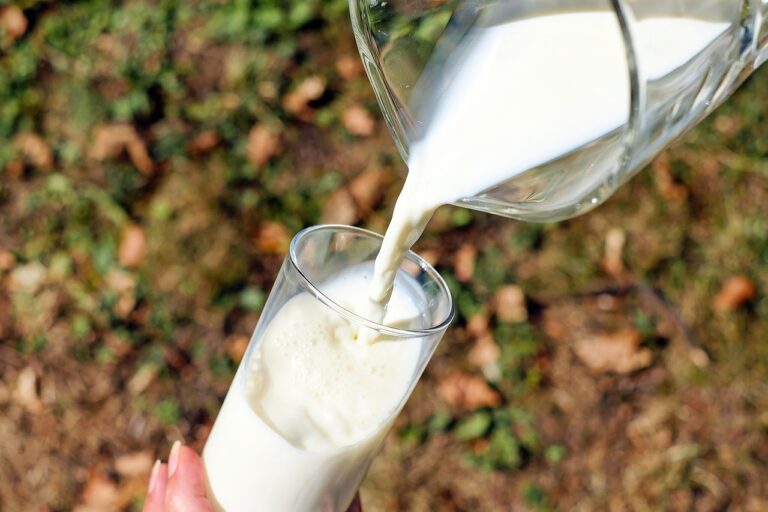Why Am I Craving Affection?

Affection is a fundamental human need. From the moment we are born, we seek out touch, warmth, and connection from our parents and caregivers. As we grow older, the need for affection remains a core part of our emotional well-being. Many of us, at some point in our lives, experience a craving for affection. This yearning is more than just a simple desire; it’s a profound need that speaks to our intrinsic nature.
Why Am I Craving Affection?
1. Evolutionary Perspective
The Human Evolutionary Need for Connection: Human beings have evolved as social creatures. Historically, being part of a group increased an individual’s chances of survival. Being close to others provided protection from predators, shared resources, and facilitated reproduction. Affection strengthens social bonds, ensuring that individuals remain within the protective circle of their community.
Physical Touch and Well-being: The act of physical touch releases oxytocin, often termed the “love hormone”. This hormone promotes bonding, reduces stress, and increases feelings of happiness. From an evolutionary perspective, craving affection can be seen as our body’s way of seeking out these beneficial effects.
2. Childhood Experiences
The Role of Early Attachment: Our experiences during our formative years play a significant role in our adult relationships. The attachment theory suggests that the bonds we form with our primary caregivers as children shape our future relational patterns. Those who lacked affection during childhood might crave it more as adults.
Seeking Unfulfilled Needs: For many, the craving for affection in adulthood can be traced back to unmet emotional needs during childhood. Seeking affection becomes a way to compensate for the love and care that one might have missed out on during their early years.
3. Emotional Void
Filling an Emotional Gap: At times, life’s circumstances can create an emotional void. This could be due to a loss, trauma, or significant life changes. During such times, individuals might crave affection as a way to fill this void and find solace.
Affection as a Coping Mechanism: For some, affection acts as a way to cope with feelings of emptiness or sadness. By seeking out affection, they aim to distract themselves from their emotions or find validation from others.
4. Self-worth and Validation
Seeking External Validation: Affection from others can act as a validation of one’s worth. When one’s self-esteem is low, they might seek out affection to feel valued and appreciated.
The Connection Between Affection and Value: Continuous validation through affection can become a cycle. The more one receives affection, the more they feel valued. When this affection is lacking, it might create a sense of unworthiness.
5. Social Conditioning
Cultural Expectations: Many cultures promote affectionate behavior as a sign of a healthy, loving relationship. This creates an expectation for individuals to seek and receive affection as validation of their relationships.
Influence of Media: Movies, music, literature, and media often romanticize affection. They present it as a pivotal part of relationships, leading individuals to believe that without affection, something might be amiss in their personal connections.
6. Physical Need
Touch as a Basic Human Need: Touch is a primary human need. It provides comfort, reduces stress, and promotes overall well-being. The absence of touch can lead to feelings of isolation and loneliness.
Health Benefits of Touch: Studies have shown that regular touch and affection can have several health benefits, including reduced heart rate, decreased blood pressure, and lowered stress levels. Craving affection might be the body’s way of seeking out these health benefits.
7. Loneliness
The Modern Epidemic: Loneliness has been termed a modern-day epidemic. With the rise of digital communication, face-to-face interactions have diminished, leading to feelings of isolation.
Seeking Connection: For those feeling lonely, affection represents a genuine connection with another human being. It’s a way to counteract feelings of isolation and create a sense of belonging.
8. Hormonal Factors
Oxytocin and Affection: As mentioned earlier, the hormone oxytocin plays a significant role in bonding and affection. Certain physiological changes or conditions might lead to fluctuating oxytocin levels, leading to an increased craving for affection.
Estrogen and Testosterone: Both these hormones influence our need for closeness and bonding. Variations in their levels, due to various reasons like menstrual cycles or medical conditions, can influence the desire for affection.
9. Inherent Personality Traits
Empathetic Individuals: People with naturally high levels of empathy often crave deeper emotional connections and, consequently, more affection.
Dependent Personality Traits: Those with dependent personality traits might have an inherent need to be taken care of and seek affection as a form of reassurance.
10. Fear of Abandonment
Past Traumas: Individuals with past experiences of abandonment or betrayal might crave affection as a reassurance that they are loved and wanted.
Affection as Security: For them, affection acts as a symbol of security and stability, ensuring that they won’t be abandoned again.
Is It Normal To Crave Affection?
Humans are inherently social beings, evolved to seek companionship and form bonds with one another. The desire for affection is a natural expression of this instinct. From an evolutionary perspective, affection plays a role in strengthening community bonds, ensuring protection and survival. In today’s context, affection remains essential for emotional well-being and mental health. Therefore, craving affection is not only normal but also a healthy manifestation of our innate human nature.
However, the intensity and frequency of this craving can vary from person to person, based on individual experiences, upbringing, and personality. While it’s normal to desire affection, it’s equally crucial to recognize when this craving stems from unmet emotional needs or becomes a coping mechanism for other underlying issues.
Craving Affection After Breakup
Breakups can be emotionally taxing and often leave individuals with a void that was once filled by their partner. The sudden absence of a familiar source of affection can be jarring, leading to intense cravings. Affection provides comfort, security, and validation. After a breakup, these feelings of security and validation are often compromised, leading to an increased desire for affection as a means to heal and find reassurance.
It’s also common for individuals to replay memories of affectionate moments with their ex-partner, further fueling the craving. Such reminiscing can sometimes act as a means of coping with the loss, even if it prolongs the healing process. While it’s natural to seek affection after a breakup, it’s essential to remember that healing requires time and self-reflection.
Craving Affection From Husband
Marriage, as a partnership, is expected to be a source of love, support, and affection. When a wife craves affection from her husband, it could be indicative of an emotional disconnect or unmet needs within the marriage. Every individual has their love language, and for some, physical touch or verbal expressions of love are paramount.
Additionally, life’s challenges and responsibilities can sometimes push affection to the back burner. The dynamics of a marriage can change over time, with phases where affection might not be as apparent. While it’s essential for both partners to communicate their needs and work towards meeting them, it’s equally important to understand that craving affection from a spouse is a legitimate and natural feeling.
Craving Affection From Partner
Being in a relationship implies a certain level of emotional intimacy and connection. A significant component of this intimacy is affection. Craving affection from a partner can arise from various factors, from changes in the relationship dynamics to personal insecurities. It’s important to remember that relationships evolve, and there may be phases where affectionate gestures aren’t as frequent.
Communication plays a crucial role in addressing these cravings. By expressing feelings and needs to the partner, both individuals can work towards a solution that ensures emotional fulfillment. Relationships thrive on mutual understanding and effort, and affection is a significant part of this dynamic.
Craving Affection In A Relationship
Within the context of a romantic relationship, affection acts as a bridge between two individuals, fostering a sense of connection and belonging. When one craves affection in a relationship, it often points to a deeper need for validation, security, or emotional connection. Affectionate gestures, whether big or small, act as reaffirmations of love and commitment.
However, it’s essential to differentiate between the inherent need for affection and the potential of using affection as a band-aid for other relationship issues. While it’s natural to desire affection in a relationship, understanding the root of this craving can lead to more profound insights and stronger bonds.
Craving Affection Psychology
The psychology behind craving affection is deeply rooted in our evolutionary and developmental history. From an evolutionary standpoint, human beings have always relied on social bonds for survival. Affectionate bonds ensured that individuals had support during adversities. On a developmental front, the attachment theory posits that the bonds formed during early childhood with primary caregivers set the stage for future relationships.
When affection is consistently craved, it can sometimes be a manifestation of attachment styles developed during childhood. Those with anxious attachment styles, for example, might continuously seek validation and reassurance through affection. Understanding the psychology behind these cravings can provide insights into personal relational patterns and guide one towards healthier relationship dynamics.
Craving Affection When Single
Being single offers freedom and independence, but it can also be accompanied by feelings of loneliness or isolation. In the absence of a romantic partner, individuals might crave affection as a means to feel connected, validated, or simply to experience the warmth of human touch. Social connections, even outside romantic contexts, play a significant role in emotional well-being.
However, it’s essential to differentiate between the natural desire for affection and the potential trap of seeking relationships solely to fulfill this need. While it’s perfectly normal to crave affection when single, it’s equally crucial to cultivate a sense of self-worth and find happiness within oneself.
Craving Affection With Rise In Desire
Sexual desire and affection are closely intertwined but distinct. As sexual desire increases, the craving for affection might also intensify. This is because, for many, affection acts as a precursor to intimacy, setting the stage for deeper emotional and physical connection. Affection reinforces trust, safety, and emotional intimacy, all of which are foundational for a fulfilling sexual relationship.
However, it’s worth noting that not everyone equates affection with sexual desire. For some, affectionate gestures are expressions of love and care, devoid of any sexual undertones. Recognizing and communicating personal boundaries and needs is essential in navigating this intricate interplay.
Craving Male Affection
Societal norms and expectations have long defined how genders express and receive affection. Women, often seen as nurturers, are typically more open in their expressions of affection. In contrast, men, bound by societal notions of masculinity, might not always express affection as openly. This dynamic can lead to an intensified craving for male affection, given its perceived rarity.
Craving male affection could also stem from deeper emotional needs or past experiences. For some, it might represent a desire for validation, security, or simply the unique bond shared with male figures in their lives.
Craving Maternal Affection
Maternal affection forms the bedrock of a child’s emotional development. The bond between a mother and child is often considered one of the most profound and formative. As individuals grow older, they might still crave maternal affection, especially during challenging times, as it represents comfort, security, and unconditional love.
However, not everyone has experienced consistent maternal affection. For those who lacked it during their formative years, this craving might be more pronounced, representing a desire to fill an emotional void from childhood.
Craving Motherly Affection
Motherly affection, similar to maternal affection, holds significant emotional weight. While maternal affection often refers specifically to the bond with one’s biological mother, motherly affection can encompass the nurturing, caring warmth provided by mother figures, be it a grandmother, aunt, teacher, or any other individual who has played a motherly role.
Craving this type of affection speaks to the universal need for nurturing, comfort, and guidance. Whether it’s the gentle touch, wise words, or simply the comforting presence, motherly affection serves as an anchor throughout life’s storms.
Craving Physical Affection
Physical touch, from a gentle caress to a tight hug, has powerful effects on human psychology and physiology. Touch releases oxytocin, reduces cortisol levels, and promotes feelings of well-being and safety. Craving physical affection can be a manifestation of the body’s intrinsic need for these benefits.
However, beyond the physiological aspects, physical affection also carries emotional weight. It can represent love, validation, connection, and security. In the absence of such touch, individuals might feel isolated or undervalued, leading to an intensified craving.
Craving Romantic Affection
Romantic affection elevates relationships, adding depth and intimacy. It goes beyond the realms of friendship or familial bonds, touching upon the unique connection shared with a romantic partner. Craving romantic affection often points to a desire for deeper emotional intimacy, passion, and connection.
However, it’s essential to recognize that romantic affection, while beautiful, should not be the sole source of one’s self-worth or happiness. A healthy relationship is built on mutual respect, trust, and understanding, of which affection is just one component.
Why Do I Crave Physical Affection So Much?
The craving for physical affection can sometimes feel overwhelming, leading one to question the intensity of their desires. As mentioned, physical touch has numerous psychological and physiological benefits. But for some, the craving might be intensified due to past traumas, unmet childhood needs, or current emotional voids.
Understanding the root of this intense craving can provide insights into one’s emotional landscape. It’s also worth noting that everyone has their love language, and for some, physical touch holds paramount importance in expressing and receiving love.
How To Stop Craving Affection
While it’s natural to crave affection, if the desire becomes overwhelming or affects one’s well-being, it might be time to address the root causes. Self-awareness and self-reflection can provide insights into why one craves affection so intensely. Engaging in activities that promote self-love and self-worth can help fill emotional voids.
Seeking therapy or counseling can also provide guidance and coping strategies. It’s essential to build a support system, whether it’s friends, family, or support groups, to navigate these feelings. Lastly, understanding and accepting that it’s okay to seek affection, but it should not define one’s worth, is crucial.
How To Stop Craving Physical Affection
Physical affection, while comforting and beneficial, should not become a crutch. If one finds themselves overwhelmingly craving physical touch, it’s essential to delve deeper into the reasons. Engaging in self-soothing activities, like meditation, journaling, or even adopting a pet, can provide alternate sources of comfort.
Building connections outside romantic contexts, like strengthening friendships or joining community groups, can also help satiate the need for connection. If the craving stems from deeper emotional issues, seeking professional help can provide clarity and guidance.
What To Do When Craving Affection
When craving affection, the first step is acknowledgment. Recognize and validate your feelings without judgment. Communicate your needs to loved ones or partners. Engage in self-care activities that promote emotional well-being. Seek therapy or counseling if the craving feels overwhelming or stems from deeper issues. Remember, it’s okay to desire affection, but it’s equally crucial to find balance and ensure emotional well-being.
In conclusion, craving affection is a multifaceted phenomenon with roots in both our evolutionary history and personal experiences. Recognizing and understanding these reasons can be the first step towards addressing and fulfilling this deep-seated need.






